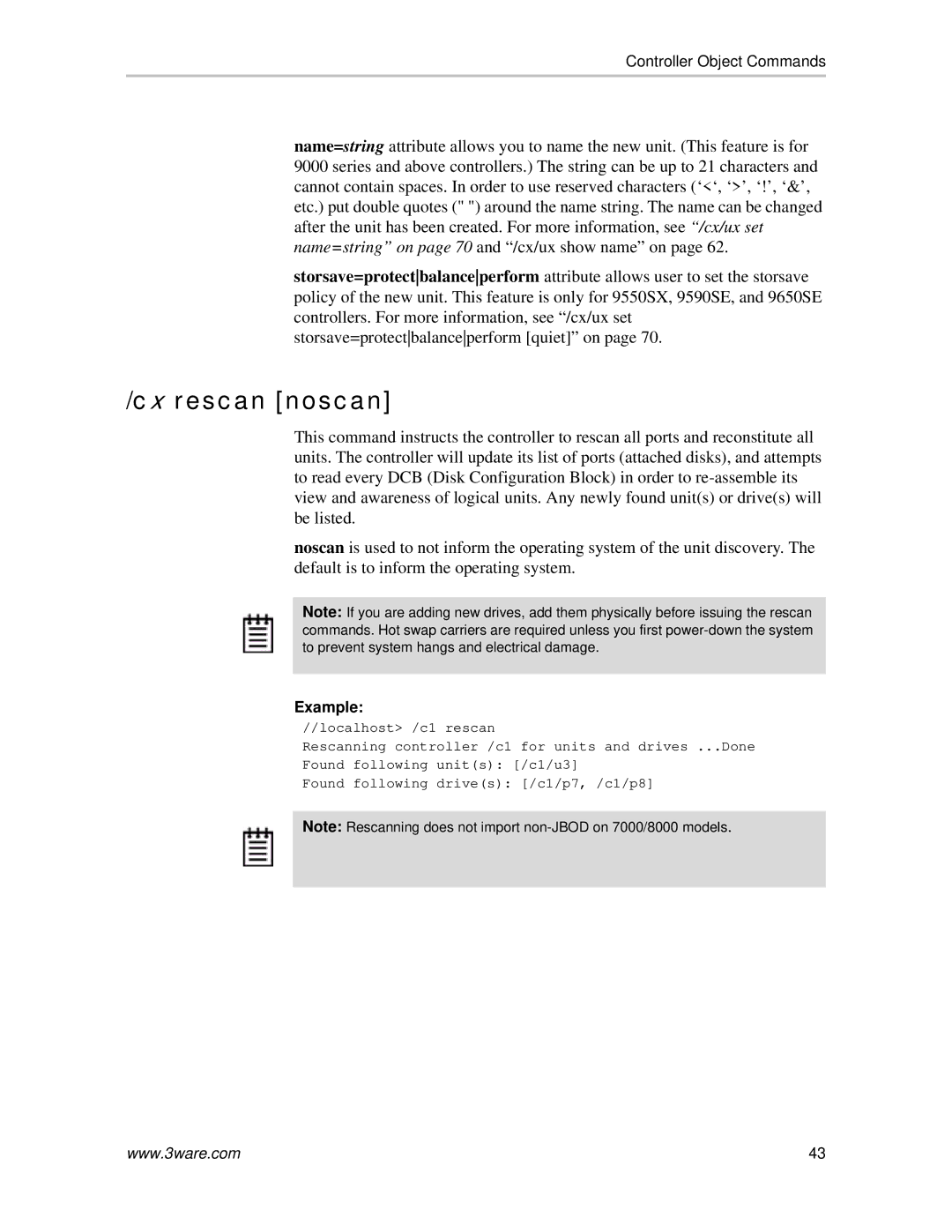
Controller Object Commands
name=string attribute allows you to name the new unit. (This feature is for 9000 series and above controllers.) The string can be up to 21 characters and cannot contain spaces. In order to use reserved characters (‘<‘, ‘>’, ‘!’, ‘&’, etc.) put double quotes (" ") around the name string. The name can be changed after the unit has been created. For more information, see “/cx/ux set name=string” on page 70 and “/cx/ux show name” on page 62.
storsave=protectbalanceperform attribute allows user to set the storsave policy of the new unit. This feature is only for 9550SX, 9590SE, and 9650SE controllers. For more information, see “/cx/ux set storsave=protectbalanceperform [quiet]” on page 70.
/cx rescan [noscan]
This command instructs the controller to rescan all ports and reconstitute all units. The controller will update its list of ports (attached disks), and attempts to read every DCB (Disk Configuration Block) in order to
noscan is used to not inform the operating system of the unit discovery. The default is to inform the operating system.
Note: If you are adding new drives, add them physically before issuing the rescan commands. Hot swap carriers are required unless you first
Example:
//localhost> /c1 rescan
Rescanning controller /c1 for units and drives ...Done Found following unit(s): [/c1/u3]
Found following drive(s): [/c1/p7, /c1/p8]
Note: Rescanning does not import
www.3ware.com | 43 |
